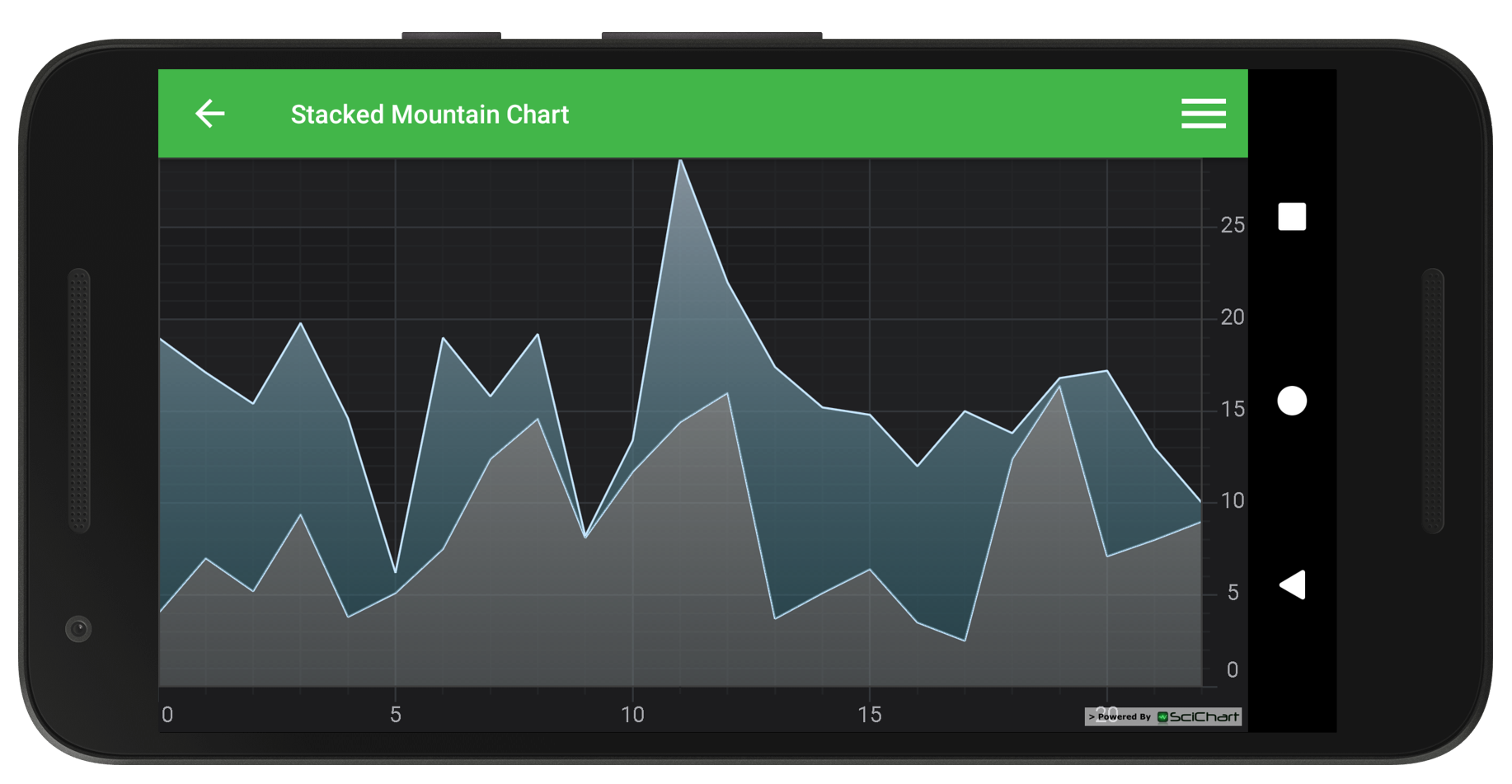Android Chart - Examples
SciChart Android ships with ~90 Android Chart Examples which you can browse, play with, view the source-code and even export each SciChart Android Chart Example to a stand-alone Android Studio project. All of this is possible with the new and improved SciChart Android Examples Suite, which ships as part of our Android Charts SDK.
Demonstrates how to use Stacked Mountain API in SciChart Android. When you add multiple StackedMountainRenderableSeries into a VerticallyStackedMountainsCollection it allows to render mountain/areas stacked one above another. Data provided by its DataSeries can be used to render an XyDataSeries (which contains one X-point and one Y-point), XyyDataSeries (renders Y values), XyzDataSeries, HlDataSeries and OhlcDataSeries(renders Close values).
Tip!
To alter the line color, provide a pen by the setStrokeStyle() method. Calling the setAreaStyle() alters the fill. The setIsDigitalLine() method makes the series digital. The Mountain-Series supports semi-transparent and gradient fills and looks great!
The full source code for the Android Stacked Mountain Chart example is included below (Scroll down!).
Did you know you can also view the source code from one of the following sources as well?
- Clone the SciChart.Android.Examples from Github.
- Or, view source and export each example to an Android Studio project from the Java version of the SciChart Android Examples app.
- Also the SciChart Android Trial contains the full source for the examples (link below).


